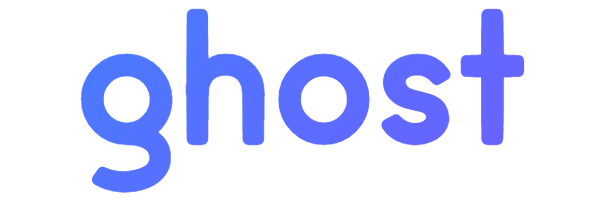Digital Marketing & Local SEO for Cape Town Businesses: The Complete Guide (No Secrets, Just Solutions)
- Team CTE

- Aug 8
- 5 min read

If you’re running a business in Cape Town right now, you already know: your customers are finding you (or your competitors) online. Whether it’s through a quick Google search, an Instagram post, or a WhatsApp recommendation, your online presence is often the deciding factor in whether you land that next sale.
Here’s the good news — building a strong, visible online presence doesn’t have to drain your budget. With the right approach to digital marketing and local SEO, even a small business can stand toe-to-toe with the big players.
This guide will give you everything — no gatekeeping, no fluff. The only catch? There’s a lot here. Most business owners will read this, realise how much work is involved, and start looking for a simpler way forward.
And that’s exactly where Cape Town Entrepreneurs (CTE) comes in. The whole point of our community is to help members thrive in their entrepreneurial journeys — whether that’s through sharing practical tools, connecting you with trusted experts, or unlocking exclusive discounts via our strategic partnerships. Our goal is simple: make sure you have the knowledge and the support to build a business that works. 1. The Reality Check: Digital Marketing in Cape Town 2025
Cape Town is a fiercely competitive market. We’re a city full of innovative start-ups, creative freelancers, family-run businesses, and big-name brands — all fighting for attention online.
Here’s what you’re up against:
Mobile-first customers: More than 70% of local searches happen on smartphones.
Visual-first platforms: Instagram Reels, TikTok, and Facebook Stories dominate content discovery.
Map-driven decisions: “Near me” searches have exploded — and if you’re not showing up on Google Maps, you’re invisible to a large chunk of your market.
Price-sensitive but quality-driven buyers: They’ll shop around online before committing.
The biggest challenge? Most businesses don’t have a clear digital strategy — they post sporadically, ignore SEO, and run ads without targeting. That’s money wasted.
2. Affordable Digital Marketing: What Works & What’s Wasting Your Time
Here are the high-impact, low-budget channels that work for Cape Town businesses:
a) Google Business Profile Optimisation
Your Google Business Profile (GBP) is free, and it’s your single most important online asset for local visibility.
Upload high-quality photos (including behind-the-scenes and team shots).
Post updates at least twice a week.
List all your services and products.
Encourage and respond to reviews.
💡 Cost: R0 – R500/month if you hire someone to manage it.
b) Localised Social Media Content
Instead of trying to be on every platform, pick 1–2 that your audience actually uses.
For Cape Town:
Instagram for visual storytelling.
Facebook for community engagement.
Tips:
Use local hashtags (#CapeTownFood, #CapeTownBusiness, #SupportLocalSA).
Feature local landmarks, neighbourhood names, and cultural events in posts.
Partner with micro-influencers (under 10k followers) for budget-friendly reach.
💡 Cost: R0 if DIY, R1,500–R3,000/month for scheduling tools + content support.

c) Email Marketing
Still the most cost-effective marketing channel.
Steps:
Create a lead magnet (discount, free guide, or booking incentive).
Use a free platform like MailerLite or Brevo.
Send a monthly newsletter with offers, updates, and value-driven tips.
💡 Cost: R0 – R200/month (under 1,000 subscribers).
d) Community Engagement
Join active Facebook Groups (CTE is a prime example).
Comment with value, not just sales pitches.
Attend local events and tag other businesses in your posts.
💡 Cost: Time investment only.
e) Paid Ads on a Budget
Run geo-targeted Facebook & Instagram ads to people within a 10–20km radius of your business.
Use Google Local Services ads (pay per lead instead of clicks).
Start small: R30–R50/day can still get results if well targeted.
💡 Cost: From R900/month ad spend.
3. Local SEO: The Step-by-Step Playbook
Search Engine Optimisation (SEO) makes sure you’re visible when people search online for what you offer.
Here’s the DIY Cape Town version:
Step 1: Keyword ResearchUse free tools like Google Keyword Planner or Ubersuggest to find local keywords.Example: Instead of “coffee shop,” target “coffee shop Sea Point” or “best cappuccino Cape Town CBD.”
Step 2: On-Page Optimisation
Put your target keyword in the page title, headings, and first paragraph.
Write meta descriptions that entice clicks.
Link between your own website pages.
Step 3: Google Business Profile Mastery
Select the most accurate business category.
Add services and their descriptions.
Use the Q&A section to answer common customer questions.
Geotag images before uploading.
Step 4: Local BacklinksGet links from other local websites to yours:
Cape Town business directories.
Chamber of Commerce listings.
Event sponsorships.
Step 5: Reviews & Reputation Management

Ask customers for reviews via WhatsApp or email.
Respond to all reviews within 24–48 hours.
Turn positive reviews into social media content.
Step 6: Mobile Optimisation
Your website must load in under 3 seconds on mobile.
Include a “Tap to Call” button.
Make sure your address links directly to Google Maps.
4. Tools & Resources You Can Start With Today
For Social Scheduling: Buffer, Later, Metricool.For SEO Audits: Ubersuggest, Ahrefs Webmaster Tools (free version).For Analytics: Google Analytics 4, Google Search Console.For Design: Canva (free templates).For Email Marketing: MailerLite, Brevo, Mailchimp (free tiers).For Local Listings: Snupit, Brabys, SA Yellow Pages, NearMe.
💡 Most of these have free versions — but they require consistent use.
5. The Workload Reality & Why Businesses Burn Out
Let’s be honest: doing all of this properly is basically a part-time job.
Time breakdown per week:
GBP management: 1 hour
Social media content creation: 3–5 hours
Email marketing: 2–3 hours/month
SEO updates & link building: 2–3 hours
Analytics tracking: 1 hour
That’s 8–10 hours/week — on top of running your actual business.
The result?
Social media becomes inconsistent.
SEO is neglected.
Opportunities are missed.
6. How CTE Makes This Easier & Cheaper
Here’s where Cape Town Entrepreneurs (CTE) changes the game:
Strategic Partnerships: Our members get exclusive discounts with vetted local service providers — from SEO audits to full ad management.
Access to Expertise: Connect with professionals who live and breathe these strategies.
Community Support: Learn from other business owners who’ve implemented these tactics successfully.
Time Savings: Instead of figuring it all out yourself, tap into ready-made systems and templates.
For example, a CTE partner might offer a full Google Business Profile overhaul for half the usual price — or manage your Facebook ads at a fraction of the going rate.

The Bottom Line
Everything in this guide works. If you follow all of it, you’ll improve your visibility, drive more local traffic, and build a stronger brand online.
But — and here’s the truth — doing it all consistently is a lot. That’s why most small businesses either give up or never start.
You don’t have to go it alone. By joining Cape Town Entrepreneurs, you get access to trusted professionals, proven strategies, and member-only discounts that make professional digital marketing & local SEO affordable.
Because in Cape Town’s competitive market, visibility isn’t optional — it’s survival. Did you find this article helpful? Let us know in the comments. You can also mail suggestions for future articles to cteadmin@proton.me.


Comments